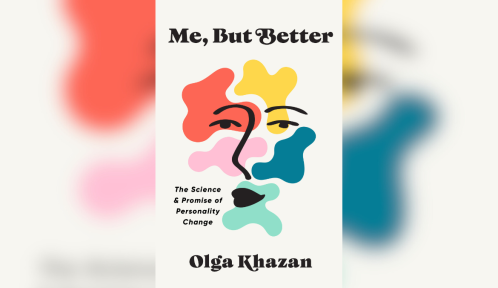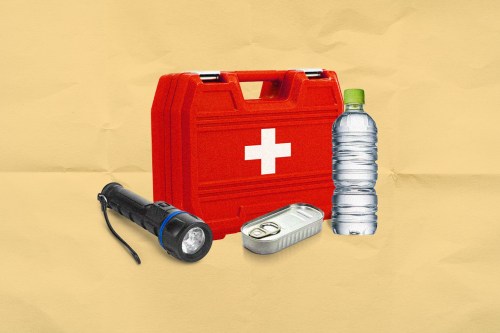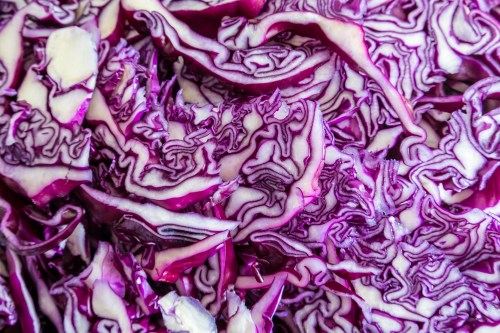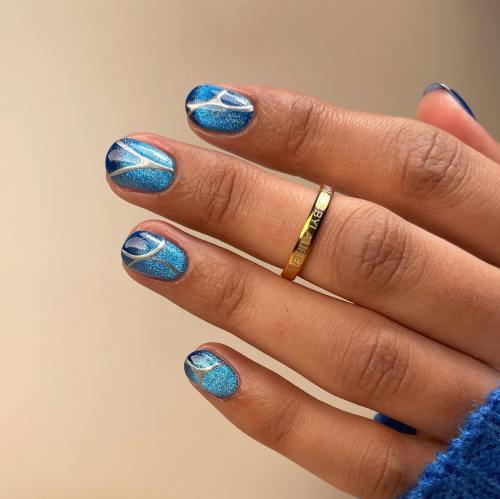Is it just me, or are there a few foodie FYIs that you cling to with an iron grip because they justify your dietary habits? For instance, let’s take my beloved coffee. It doesn’t just power up my mornings (and most mid-days) and facilitate consistent BMs—two impressive feats as someone prone to sluggishness in more ways than one—but it may also increase healthspan1 and lower the risk of cardiovascular disease.
Experts in This Article
founder and director of Real Nutrition
Similarly, some people may put their faith in the purported health benefits of red wine—in large part courtesy of its antioxidant profile—to back up their habit to pour a glass or more of vino a night. But here’s where things get tricky: Although red wine has had a halo around it for several decades, the reality is that that red wine is not, in fact, a genuine “health” food.
Keep reading to discover the sobering truth about red wine, including how it achieved its claim to fame as a heart-healthy tonic, and if any amount of vino is fair game.
Why we’ve been led to believe that red wine is good for your heart
There are a few reasons why red wine has received great PR over the years, especially in terms of cardiovascular health. First, there’s its antioxidant content. “Red wine contains resveratrol, a polyphenol found in the skin of red grapes, which is shown to have potential cardiovascular benefits such as reducing inflammation and preventing blood clots,” says Amy Shapiro, RD, CDN, of Real Nutrition in New York City. “Red wine also contains flavonoids and polyphenols, which can reduce LDL (bad) cholesterol.”
Second, red wine is regularly on the menu across a few cultures that are also known for their general heart health and longevity. In the “Blue Zone” (aka an area of the world where life expectancy and healthspan are much longer than typical) of Sardinia, Italy, it’s a common daily practice to enjoy Mediterranean fare alongside a glass or two of red wine. Blue Zones expert Dan Buettner claims the practice can “quadruple the flavonoid or antioxidant absorption [of the meal] and lower cortisol levels.” Shapiro also mentions the so-called French paradox2, or “the observation of the French population, with a diet high in saturated fat and moderate consumption of red wine yet lower incidences of heart disease.”
Older studies starting back in the late 1970s3 have also linked moderate red wine and/or alcohol consumption4 with potential heart health benefits. As recently as 2019, a review of studies published in the journal Molecules5 found that based on the existing evidence, “a moderate intake of red wine may produce cardioprotective effects.” However, many of these studies were observational, meaning that they were drawing associations rather than conclusively establishing cause and effect, and some of them are only on very small numbers of people—meaning that more research and additional studies that are designed to establish cause and effect are required to understand why these potential benefits happen and if they are universal.
The false promise of red wine’s health benefits
It can be easy to look at these tidbits through rosé-colored lenses, but it’s important not to read too much into them. For starters, there’s still a lot to learn about the benefits of resveratrol and whether it actually does much for humans. Per a 2012 review6 published in the journal Frontiers in Pharmacology, resveratrol may have compelling circumstantial and experimental evidence, but definitive clinical studies on the polyphenol were (and are still7) lacking.
Even if there was a lot of research backing the benefits of resveratrol, “the levels of resveratrol in red wine are low,” Shapiro says. Basically, you’d likely have to drink a lot to see any benefit. And considering that drinking tons of alcohol of any kind comes with lots of dangerous downsides…that’s not really feasible or safe. A 2016 review of studies on resveratrol and its benefits8 found that “it is not possible to absorb the recommended therapeutic doses of resveratrol by drinking wine or through dietary sources.”
“Despite healthful compounds identified in red wine, studies have not confirmed any type of alcoholic beverage—wine, beer, or spirits—reduces risk of cardiovascular disease.” —Amy Shapiro, RD, CDN
Even when looking at the long-living populations who happen to drink wine and it’s clear that there’s likely lots of other things going on that are potentially more likely contributing to their good health. For example, Sardinians regularly walk or bike in their hilly terrains, as well as consume an estimated 47 percent of daily calories from carbs in the form of whole grains9, both of which contribute to a holistically heart-healthy way of life. More generally, a healthy user bias could also be at play in the research to date positioning red wine as a health food10. Those who enjoy modest amounts in moderation (versus in excess) are likely to have the discipline and means to stick to other healthy habits, such as adhering to a diet rich in fruits and veggies.
It’s also critical to remember that at the end of the day, red wine is alcohol—and alcohol is not (and has never been) a health food. Delicious? Yes. Fun at a party? Also yes. But many high-quality studies have associated any amount of alcohol drinking with an increased risk of cancer and cardiovascular disease11, and no benefit to mortality12.
The TL;DR: “Despite healthful compounds identified in red wine, studies have not confirmed any type of alcoholic beverage—wine, beer, or spirits—reduces risk of cardiovascular disease,” Shapiro says. Womp, womp.
Can red wine factor into a healthy lifestyle?
So… should red wine be totally off the table, both literally and proverbially? According to Shapiro, moderation is the name of the game. She says you don’t necessarily have to go cold turkey if your consumption doesn’t surpass the upper limit of up to a glass a day for women and up to two for men. (However, this definitely shouldn’t be viewed as a green light similar to intake recommendations for water, protein, fiber, and the like.)
“It is also critical to consider individual health factors such as age, medical history, medications, and family history related to alcohol consumption habits,” Shapiro continues. And if you *absolutely must* reach for alcohol, red wine is still a decent choice compared to most other options. “Red wine is considered healthier than white wine due to its presence of about 10 times the amount of polyphenols. Beer contains similar phenolic compounds as red wine but in lower amounts,” she says.
Still, it’s important to circle back to the fact that alcohol of any kind is still a toxin… full stop. Moreover, red wine intake is more likely to offer more cons than pros given its potential to heighten the risk of dependence, liver disease, impaired judgment, accidents, and other adverse outcomes.
All things considered, you should view your red wine intake as something that’s probably worth limiting—rather than adding or leaning into—for the sake of your heart and overall well-being. Drinking red wine is not a silver bullet for health or longevity. Rather, “red wine consumption should be viewed in context with an overall healthy lifestyle. It should complement other healthy habits such as a balanced diet rich in fruits, vegetables, whole grains, regular physical activity, and adequate sleep,” Shapiro concludes.
—reviewed by Jennifer Gilbert, MD, MPH
Chieng, David et al. “The impact of coffee subtypes on incident cardiovascular disease, arrhythmias, and mortality: long-term outcomes from the UK Biobank.” European journal of preventive cardiology vol. 29,17 (2022): 2240-2249. doi:10.1093/eurjpc/zwac189
↩︎Ferrières, Jean. “The French paradox: lessons for other countries.” Heart (British Cardiac Society) vol. 90,1 (2004): 107-11. doi:10.1136/heart.90.1.107
↩︎St Leger, A S et al. “Factors associated with cardiac mortality in developed countries with particular reference to the consumption of wine.” Lancet (London, England) vol. 1,8124 (1979): 1017-20. doi:10.1016/s0140-6736(79)92765-x
↩︎Stampfer, M J et al. “A prospective study of moderate alcohol consumption and the risk of coronary disease and stroke in women.” The New England journal of medicine vol. 319,5 (1988): 267-73. doi:10.1056/NEJM198808043190503
↩︎Castaldo, Luigi et al. “Red Wine Consumption and Cardiovascular Health.” Molecules (Basel, Switzerland) vol. 24,19 3626. 8 Oct. 2019, doi:10.3390/molecules24193626
↩︎Catalgol, Betul et al. “Resveratrol: French paradox revisited.” Frontiers in pharmacology vol. 3 141. 17 Jul. 2012, doi:10.3389/fphar.2012.00141
↩︎Brown, Karen et al. “Resveratrol for the Management of Human Health: How Far Have We Come? A Systematic Review of Resveratrol Clinical Trials to Highlight Gaps and Opportunities.” International journal of molecular sciences vol. 25,2 747. 6 Jan. 2024, doi:10.3390/ijms25020747
↩︎Weiskirchen, Sabine, and Ralf Weiskirchen. “Resveratrol: How Much Wine Do You Have to Drink to Stay Healthy?.” Advances in nutrition (Bethesda, Md.) vol. 7,4 706-18. 15 Jul. 2016, doi:10.3945/an.115.011627
↩︎Wang, Chaoyue et al. “Sardinian dietary analysis for longevity: a review of the literature.” Journal of Ethnic Foods vol 9, 33. 22 Aug. 2022, doi:10.1186/s42779-022-00152-5
↩︎Snopek, Lukas et al. “Contribution of Red Wine Consumption to Human Health Protection.” Molecules (Basel, Switzerland) vol. 23,7 1684. 11 Jul. 2018, doi:10.3390/molecules23071684
↩︎Biddinger, Kiran J et al. “Association of Habitual Alcohol Intake With Risk of Cardiovascular Disease.” JAMA network open vol. 5,3 e223849. 1 Mar. 2022, doi:10.1001/jamanetworkopen.2022.3849
↩︎Zhao, Jinhui et al. “Association Between Daily Alcohol Intake and Risk of All-Cause Mortality: A Systematic Review and Meta-analyses.” JAMA network open vol. 6,3 e236185. 1 Mar. 2023, doi:10.1001/jamanetworkopen.2023.6185
↩︎
Sign Up for Our Daily Newsletter
Get all the latest in wellness, trends, food, fitness, beauty, and more delivered right to your inbox.
Got it, you've been added to our email list.










